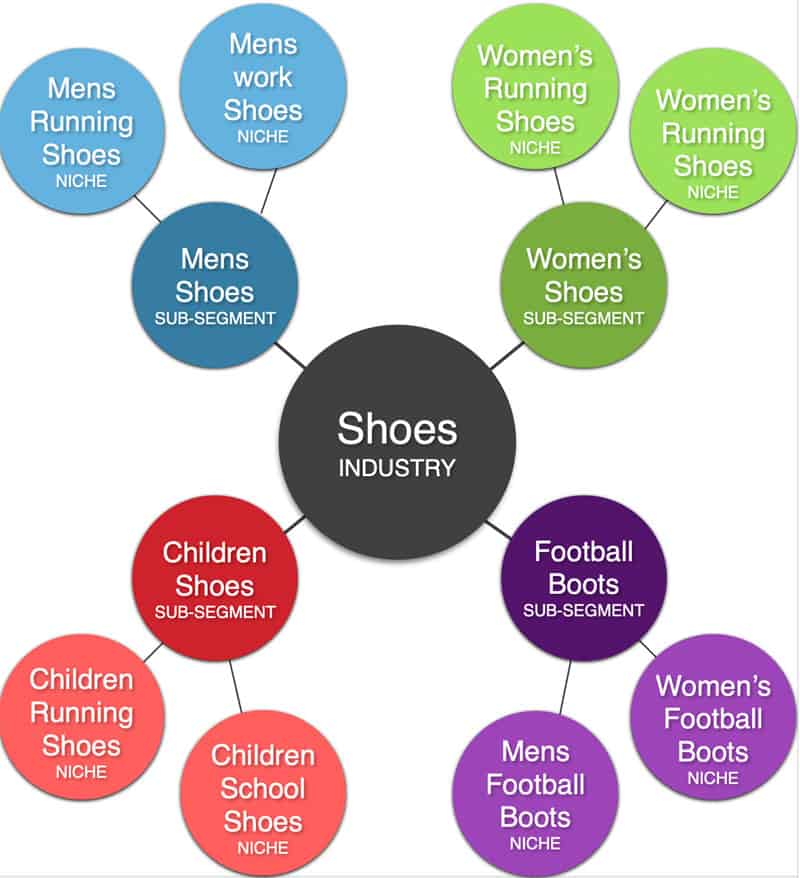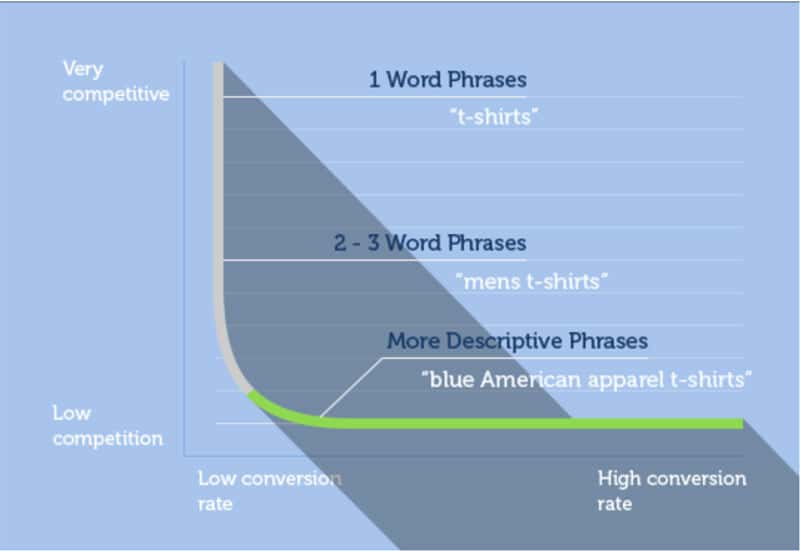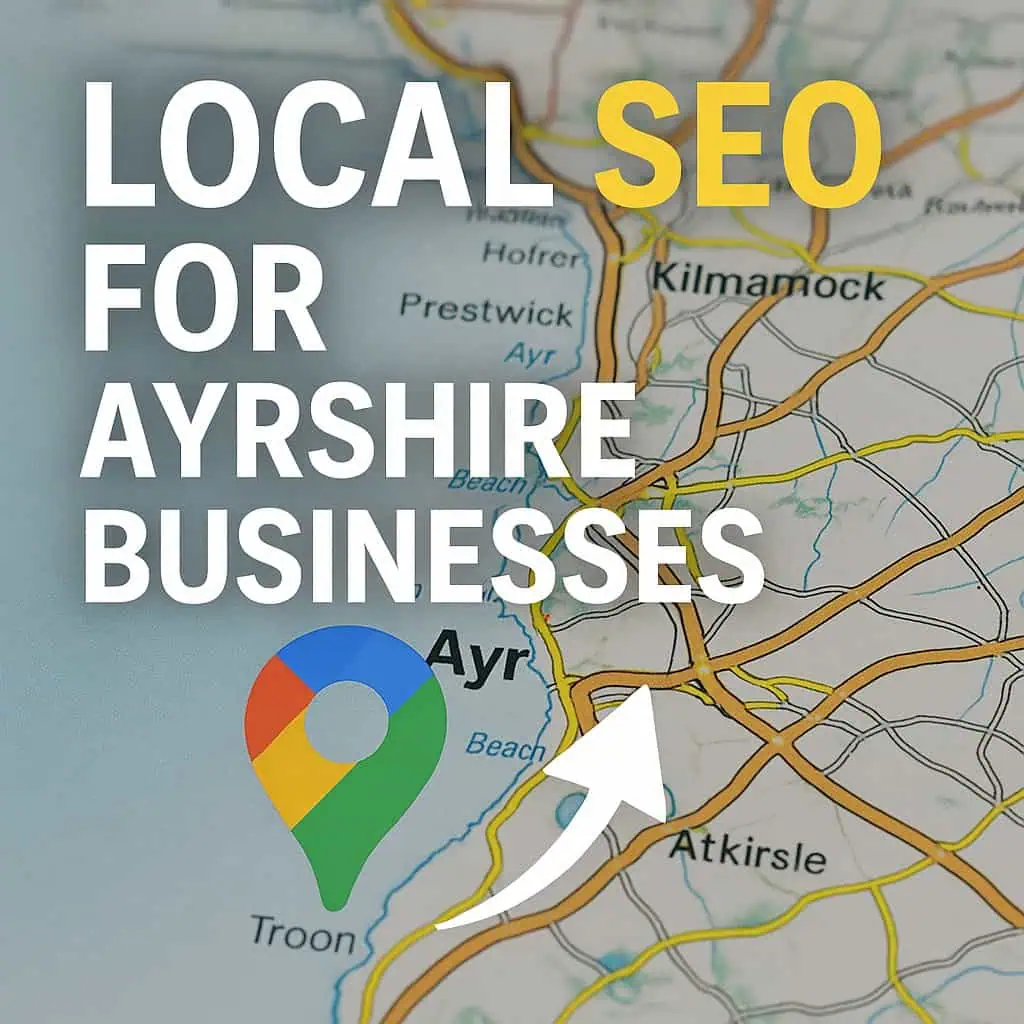Updated December 2025.

This post will go through how to do keyword research focusing on the why and how-to.
By the end of the post, you will understand and be able to carry out keyword research for your business.
It’s a beginner guide, so don’t expect to be an expert or “guru” by the end.
I’ve been carrying out keyword research for about ten years now to optimise websites for search.
To get your website and business found in search engines organically (without paying for traffic). Keyword research is the starting point every time.
Let’s tackle a rising issue in recent years with the increase of social media in marketing.
Keyword research and SEO (search engine optimisation) are dead! That’s what many social media marketing “gurus” are telling us.
So why is it when you search for anything today on the internet, the results are articles, blog posts, web pages and YouTube videos?
Well, because all of the search engines rely on keywords and search phrases to identify the answer to your question. And, the articles and websites with the best SEO authority rise to the top of the search rankings – always!
The number one search engine is Google search, and the number two search engine is YouTube (owned by Google). And, their software algorithm relies on keywords and keyword phrases to deliver search results.
The changes in the algorithm over the last ten years has meant that phrases alone are not the determining factor.
It’s the intent behind the search that is the crucial factor (more about that later in this post).
How To Do Keyword Research
What is keyword research?
Keyword research is the action of finding and analysing user search terms and phrases that they type into search engines. And, specifically, the search terms and phrases that describe/relate to your products and services.
If you know the right search terms and phrases, you can write your website content accordingly.
Why is keyword research important for online marketing
Apart from the areas that I have discussed above, it’s the guiding factor for how your business will get found online.
If you know what questions your customers ask you can write your content to answer those questions. Internet searches work on topics and user intent.
If your web pages, articles and blog posts don’t discuss those topics, then the search engine has no reason to list you in the results.
Keyword research has several functions:
- Identify the keywords and phrases for your product/service
- Find the keywords and phrases that your potential customers use to find your product/services
- ask a question related to your products/services
- topics that relate to your product/services
- Identify the user intent
What is keyword/user intent?
Keyword intent is in basic terms the user’s purpose for the search.
There are four types of keyword intent:
- Commercial intent
- Informational intent
- Transactional intent
- Navigational intent
Commercial intent is a strong signal of a “buy now”, “get coupon” style search term and indicates a high-level commitment.
Informational intent is where the user is looking for more about the subject. The user is not in buying mode at this stage. The signals are search terms that use “how-to”, “the best way to”, and “why” in the search.
Transactional intent is more difficult to identify as it sits in between commercial and informational intent. This can be identified by terms such as “xxxx review”, “xxxx vs xxxx”, and “top 10” style search terms.
Transactional intent signifies the user is ready to purchase but needs more information to make an informed decision.
Navigational intent is where the user knows where they want to be in terms of either location, brand, and outcome. For instance, it might be a customer who is looking for a website login page or a brand website.
Here is an example of all four:
- Buy Nike running shoes (commercial intent)
- Best Nike running shoes (informational intent)
- Nike vs Adidas running shoes (transactional intent)
- Nike store near me (navigational intent)
This blogs designed to give you an understanding of:
- What are keywords and why are they so important.
- Why SEO requires keyword research first.
- The 13 mistakes you have already made.
I’m going to take you through why it’s the most crucial element to get right when marketing online, and it’s the number one thing that has to happen when marketing online.
The first three things to do when launching a business or campaign online:
- Product or service description
- Ideal client avatar
- Keyword Research
If you are a complete beginner, or just trying to understand Search Engine Optimisation, or you are trying to get to grips with where keyword research fits in your online marketing. Then this is the book for you.
Proper keyword research starts with generating a list of related and relevant keywords; there’s no other way around it.
In this book, you’ll discover how to use simple free tools to generate a massive list of related and highly relevant keywords, as part of your keyword research for content marketing, articles, posts, a website on-page SEO and paid advertising.
Keyword research is fundamental to almost everything you do online.
From searching for information on Google to blogging, search engine optimisation, online marketing and paid advertising. What makes it so important is the fact that both users and search engines depend on keywords to find your site.
KEYWORD RESEARCH DEFINITION
Keyword research is the process of researching and choosing words and phrases that users will search for, that directly relate to your business, product or services.
So, if you’re an advertising agency located in Manchester – it would make sense that someone searching for “Manchester advertising agency” would be able to find your site in Google’s organic search listings. But it’s not quite as easy as merely choosing keywords for your website.
Without “optimising” your site and its content around this keyword phrase, your website has little chance of being presented by Google to a user performing the search.
Until you know what words and phrases are most valuable for your website to rank for – you cannot optimise the pages in your site, and you can’t start your content strategy to help draw qualified traffic and leads to your site.
If you the wrong set of keywords are chosen for your website, and you optimise for keywords that don’t directly relate to your business and its offerings, you may very well get traffic to your site – but it will be unqualified traffic.
The wrong traffic is not only frustrating to you as the site owner (lots of traffic with no leads), but it is disappointing to site visitors as well.
For these users, the “back button” is a short click away and a high “bounce” rate is almost certainly guaranteed (bounce rate is when a user lands on a page and leaves without navigating anywhere else).
When a user’s search yields a website with content that closely matches the product or service or information they were seeking – they are much more likely to stick around, dive deeper and convert them into customers.
BENEFITS OF KEYWORD RESEARCH
“To Benefit from Keywords – You Need to Know How to Find (and Use) Them”.
If you can master the lost art of finding keywords for your business — you’ll not only benefit from more search engine traffic – but you’ll also know your customers better than your competition.
Despite the importance of keyword selection, most people’s keyword research process looks something like this:

Keywords or phrases may be one of the single most important tools used in the internet marketing industry.
Keywords research done correctly can unlock the door to a world of online customers searching for your products or services.
Optimising your website will allow your online business to identify itself to search engines, thus opening the door to your customers.
Before you fire up a keyword research tool or fiddle with a single title tag, you need to identify niche markets in your industry.
Once you find these niche markets, you’ll be able to tap into untapped buyer keywords that your competition doesn’t know.
That’s what we will cover next…
NICHE MARKETS
Niche Markets: Where (Smart) Keyword Research Starts.
“What is a Niche Market, exactly?”
A Niche Market is simply a sub-segment that’s part of a broader market. For example, let’s say that you run a business that sells shoes.
- “Shoes” would be the broad market
- “Men’s shoes” would be the sub-segment of shoes
- “Womens running shoes” would be a niche market
- “Men’s work shoes” would be a niche market
- “Children’s school shoes” would be a niche market
- “Women’s Nike tennis trainers” would be a niche market
So you get the idea?
If you are trying to cater to everyone online, selling all things to all men, you need deep pockets to compete with the big brands. However, with a little bit of clarity, preparation and research, you can identify specifically focused niche markets such as the examples above.
Each niche market should be dealt with separately, and this allows you to get to grips with your target market in that niche. For instance, someone who searches for “men’s work shoes” will not be pleased if the page they land on includes women’s shoes, children’s shoes and men’s shoes.
So the secret is being specific, give them exactly what they are looking for when they land on the page:
- Page headline “men’s work shoes.”
- Page body text content contains “men’s work shoes.”
- Images of the “men’s work shoes” that you sell
- Information on the “men’s work shoes,” i.e. sizes, colours.
This way, you can market the page to the right people, and have more chance of converting a higher percentage of visitors.
NICHE MARKETS – CLOUD MAP
Niche Clouds: The Easiest Way to Find Niche Markets
The goal with your Niche Cloud Map is to map out the different “clouds” that tend to float around your actual industry. Each cloud represents a Niche Market.
All you need to start is mind mapping software or (if you want to go old school) a pen and paper. Here is an example of a niche cloud map:

If you’re struggling, or want to find more Niche Markets, here are a few simple strategies to try.
Buyer Personas
A buyer persona is a simple way to identify other Niche Markets where potential customers belong.
And once you identify these Niche Markets, you can easily find keywords that potential customers use when they’re not searching for your products and services (in other words, most of the time).
Your keyword research-focused buyer persona should include your target audiences:
- Gender
- Age
- Approximate income
- Hobbies and interests (what they do for fun)
- Things that they struggle with
- What they want to accomplish (personally and professionally)
Depending on your niche, you may have several different buyer personas.
For example, following our shoe example, you might have buyer personas for men, women AND for parents (who in many cases will be the ones that ultimately buy the product).
Forums
Forums are like having live focus groups at your fingertips 24 hours a day, seven days a week.
The easiest way to find forums where your target audience hangs out is to use these search strings in Google:
“keyword” + “Forums” or “keyword” + “forum” or “keyword” + board”

You can also use BoardReader.com, which is a search engine for forums.
Wikipedia is an often-overlooked goldmine of niche research.
Where else can you find overviews on a topic curated by thousands of industry experts and organised into neat little categories?
- First, head over to Wikipedia and type in a broad keyword:
- Then, look for the “contents” section of the page.
- Some of these sections will be killer Niche Markets that you may not have found otherwise.
- You can also click on some of the internal links on the page to check out the Table of Contents of other, closely related entries.
- When you click on that link, you’ll notice that the table of contents for the Rebounding page has a few more Niche Markets for you to add to your map:
TYPES OF KEYWORDS
The Head, Body and Tail
Now that you’ve identified a large group of Niche Markets its time to find some keywords!
Most people in SEO (myself included) divide keywords into three main categories: head, body and the (long) tail.

Head Keywords:
These are usually single-word keywords with insane amounts of search volume and competition (for example, “Insurance” or “vitamins”). Because searcher intent is all over the place (someone searching for “insurance” might be looking for a car insurance quote, a list of life insurance companies or a definition of the word), Head Terms usually don’t convert very well.
Body Keywords:
Body keywords are 2-3 word phrases that get decent search volume (at least 2,000 searches per month) but are more specific than Head Keywords. Keywords like “life insurance” or “order vitamins online” are examples of Body Keywords. These almost always have lower competition than Head Terms, but can still be very competitive.
Long-Tail Keywords:
Long-tail keywords are long, 4+ word phrases that are usually very specific. Phrases like “affordable life insurance for senior citizens” and “order vitamin D capsules online” are examples of long-tail keywords. Even though they don’t get a lot of search volume individually – when added together-long tails make up the majority of searches online.
I recommend putting most of your effort behind Body and Long Tail Keywords.
Why?
As you just read, Head Terms are a) super competitive and b) don’t convert well. So those are out.
In my opinion, Body Keywords hit the sweet spot of search volume, buyer intent and competition. And when you optimise pages around Body Keywords, you’ll usually rank for related long tails automatically. Not to mention the 15% of all keywords that have never been typed into a search engine before.
In other words, when you optimise for Body keywords, you tend to gobble up a lot of long-tail traffic naturally from unique searches and from crazy long 5-12 word keywords (if you’ve ever checked your Analytics to see what people use to find your site, you know what types of long keywords I’m talking about).
Because they’re usually easier to rank for than Head or Body Keywords, many SEOs focus on Long Tail Keywords. Although Long Tail Keywords are less competitive (and tend to convert well), they’re not without problems.
What do I mean?
Remember that each Long Tail Keyword may only get 100-1000 searches per month. Which means in order to get lots search engine traffic from long tails you need to bang out dozens (or even hundreds) of articles… each optimised around a single Long Tail Keyword.
Publishing reams long tail-focused content puts you at serious risk of a Google Panda penalty. In fact, companies like Demand Media and Suite101 lost millions betting on this strategy.
That’s not to say you shouldn’t use long tails as part of your search engine optimisation strategy (in fact, there’s an entire chapter in this guide dedicated to finding them).
But don’t fall into the trap of banging out hundreds of pages hoping to rank for long tails.
“Searches Related To…”
Did you ever notice that when you scroll to the bottom of Google’s search results, there’s a section called, “Searches related to”?

What is search engine optimisation?
In simple terms, search engine optimisation is the use of keywords and phrases on a web page, blog post, sales page, article, and case studies online.
There are many factors to SEO, including headings and subheadings (H1, H2, H3 tags) on the page that use similar search keywords and phrase.
Images on the page are also searchable, using descriptive titles with keywords to let Google know what the image is.
Side note: Years ago, when SEO was in its infancy, and the search algorithms were not as sophisticated. Web developers and businesses would “stuff” keywords on a page to rank it higher.
Keyword stuffing had no value to the user and was solely to rank a page. The quality of the page was usually low.
It became common for pages to have hundreds of keywords and phrases listed at the bottom. Thankfully using this practice today will guarantee that your page will never get found in search.
Today, most good specialist SEO, web developers and content marketers focus on the value and purpose of the page first. Then concentrate on keywords research and content.





